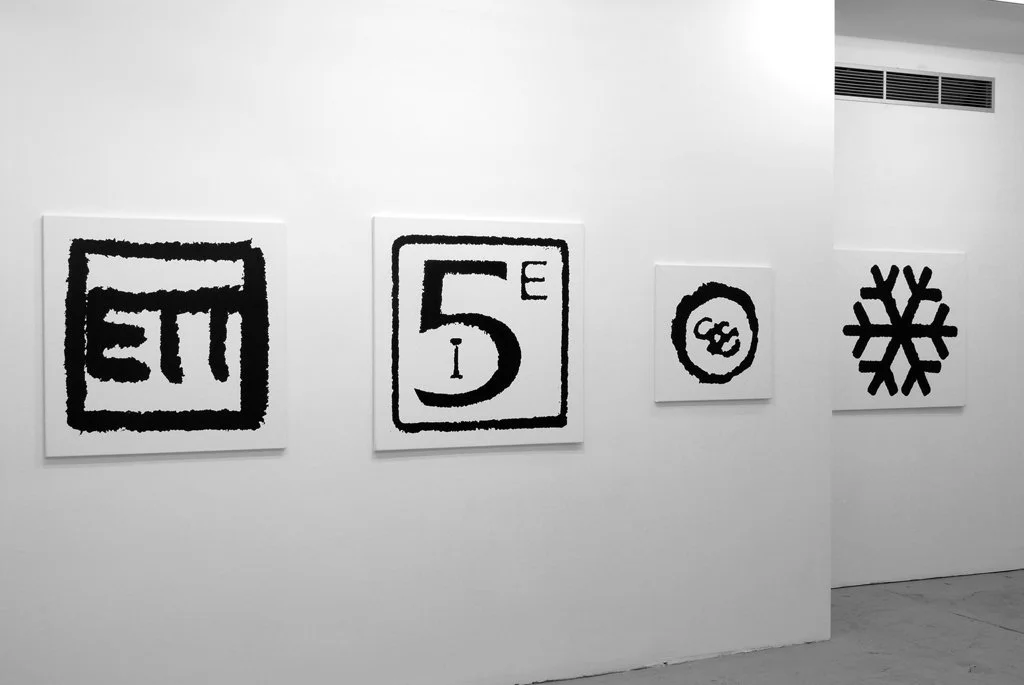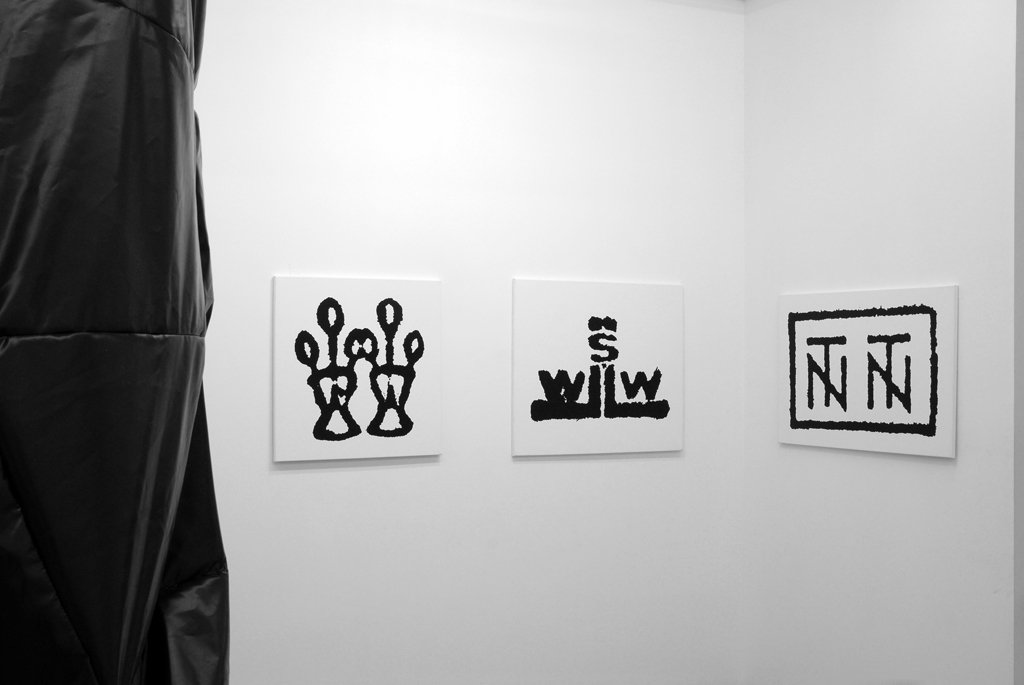Jacques André: Social Abstraction
28 April–27 May 2006, Brussels
Nineteen white fabrics decorated with black signs are stuck on the stripped walls of the gallery. At the centre of the room, a black pneumatic structure in the shape of a C breathes. The atmosphere is tense. The screen-printed images seem the only escape. This attempt is quickly aborted, since only two penguins on the ice pack and a pretty snow star can be distinguished from the figures, letters, numbers and other unpleasing initials. Apparently, they are neither marks affixed at the entrance of a party, nor the tattoos of Inuit sailors, nor even a visual pollution such as the one found on the Internet. “Administrative Art” seems to be the first tangible definition. In reality, the nineteen paintings represent the nineteen stamps of the unemployment administrations of the nineteen communes of Brussels. As for the C shape, it is not the inflatable drift of a design chair, but the three-dimensional reproduction of the letter on the unemployment registers in Brussels on which, one had to mark in the nineties the number of unemployed days with the letter C.
I am delighted to meet Jacques Andre, the penpusher in suit and tie, who is responsible for this misdeed. This installation is a lure. Jacques André has long hair, a beard and dresses like a tourist. This installation is a lure. Not only does Jacques André show his latest pop paintings, but he also sneaks in a context, where he displaces the expected relationships between different social groups. In this case, he literally exhibits his status of unemployed/artist, of non-worker scholar, to the public and to the collectors of an important Brussels art gallery.
He desacralizes the role of the artist while avoiding the clichés such as idiocy or self-destruction, and opts for a subtle scenario setting. He is a diplomatic disturber. One of his first works from his student years seems to confirm this. During the popular French TV dating show from the 80’s, “Tournez Manège,” Jacques André asked, with perfect ease, his candidate-sweetheart: “Do you think that the majority of the population is able to seize the social dimension of this show?” Consternation! “Can you repeat the question?” replied the candidate. The laughter saved everyone from embarrassment. Relationships were disturbed for a few seconds, enough to question everyone, including the audience, about the role they were playing in the show and in the society.
Jacques André does not care about being associated with a medium, but with facts and social activities. An artist without a studio, he collects his work from day to day by achieving his duties as artist-citizen-consumer, by buying, reading, collecting, copying, discussing, selling... He transforms his daily life into a ready-made, but doesn’t take himself for a work of art. He acts as an agitator – “Don’t ever work!” - by using what he cannot avoid to reproduce: the traces of his life.
David de Tscharner










